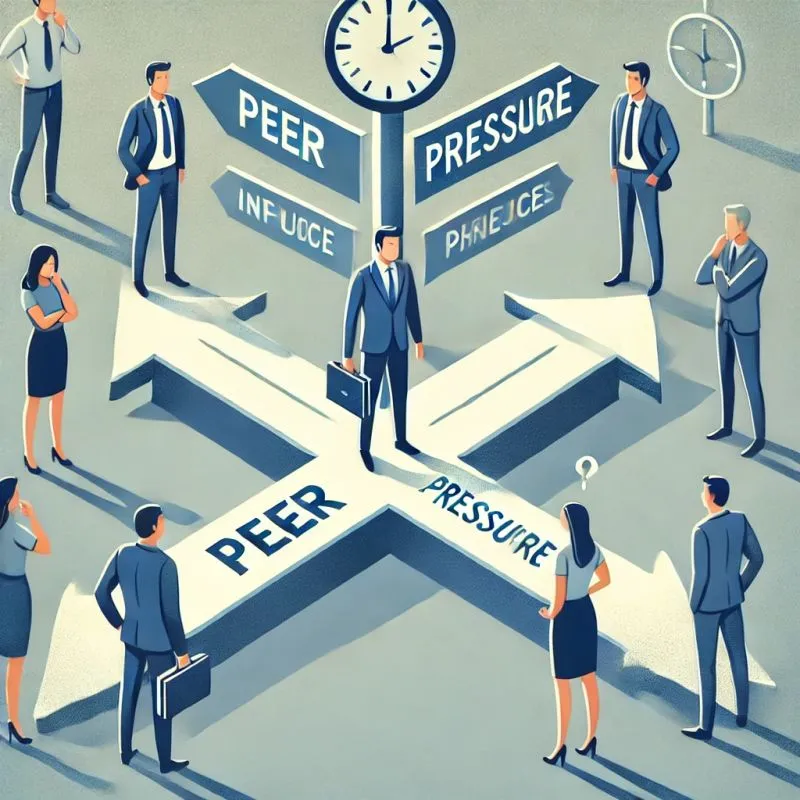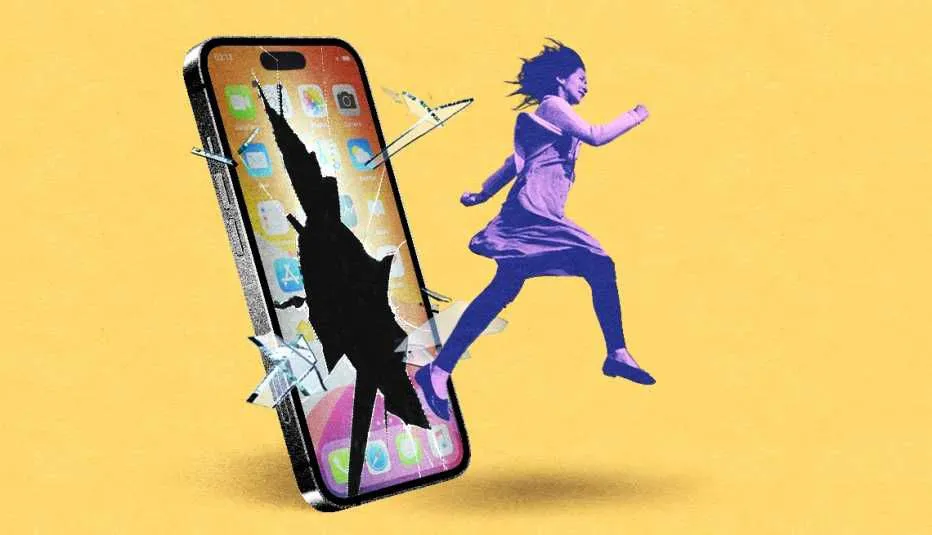Research shows teens spending 3+ hours daily on social media face increased risk of mental health problems, especially girls aged 10-14. Every like triggers dopamine, creating addictive scrolling patterns that fuel comparison and self-doubt. Learn how social platforms manipulate your psychology and what you can do about it.
When Scrolling Becomes Soul-Crushing: The Hidden Cost of Social Media
You open Instagram to check one quick message and somehow find yourself an hour later, feeling worse about your life, your appearance, and your accomplishments. Your friend's vacation photos make your weekend feel boring. A colleague's promotion announcement triggers a spiral of self-doubt about your own career. An influencer's 'perfect' morning routine leaves you feeling like a failure before 9 AM. If this sounds familiar, you're experiencing what millions of users face daily—the psychological manipulation built into every social media platform. At LissnUp, we understand that social media's impact on self-esteem isn't about lacking willpower or being 'too sensitive.' These platforms are deliberately designed to capture and monetize your attention using sophisticated psychological techniques that can leave even the most confident people questioning their worth.
The Dopamine Trap: How Social Media Hijacks Your Brain's Reward System
Every Like Is a Hit of Digital Validation
Social media platforms exploit your brain's dopamine reward system—the same mechanism involved in addiction. Each like, comment, share, or notification triggers a small release of dopamine, the 'feel-good' neurotransmitter. This creates a cycle where you unconsciously seek more social validation to recreate that brief high. The problem? The dopamine hit from digital validation is fleeting, often followed by an emotional crash that leaves you craving more.
The Endless Scroll by Design
Features like infinite scroll, push notifications, and algorithm-driven content aren't accidents—they're carefully engineered to keep you engaged as long as possible. The unpredictable nature of what you'll see next (will it be interesting? boring? triggering?) creates what psychologists call 'variable ratio reinforcement,' the most addictive type of reward schedule. This is why you can't seem to stop scrolling even when you're not enjoying what you see.
FOMO: The Anxiety Engine
Fear of Missing Out (FOMO) isn't just a buzzword—it's a powerful psychological trigger that platforms deliberately activate. Limited-time stories, real-time updates, and trending content create artificial urgency and scarcity. Your brain interprets missing out on social information as a threat to social connection, triggering anxiety and compulsive checking behaviors.
The Comparison Trap: Why Everyone Else's Life Looks Perfect
You're Comparing Your Behind-the-Scenes to Everyone Else's Highlight Reel
Social media fundamentally skews perception by showing only the best moments of people's lives. Research shows that exposure to these curated, filtered presentations leads to upward social comparison—measuring yourself against others who appear to be doing better. This is particularly damaging for teenagers and young adults, with girls aged 10-14 being most vulnerable to self-esteem issues related to social media use.
The Perfectionism Pressure Cooker
Constant exposure to highly edited, professionally styled content creates unrealistic standards for everything from appearance to lifestyle to achievements. Studies show that heavy Instagram use is particularly linked to body image issues and perfectionism, especially among young women. When your reference point for 'normal' is influenced by professional photography, makeup teams, and digital editing, real life can feel inadequate by comparison.
The Metrics of Self-Worth
Social media reduces complex human experiences to quantifiable metrics—likes, followers, comments, shares. This gamification can lead people to evaluate their self-worth based on these numbers rather than internal measures of value. When your self-esteem becomes tied to external validation from strangers online, you lose connection with your authentic sense of worth.
The Mental Health Toll: What Research Really Shows
The Statistics Are Sobering
Research indicates that adolescents spending more than three hours daily on social media face increased risk for mental health problems, particularly anxiety, depression, and internalizing disorders. Between 2010 and 2015, rates of depression among adolescents increased by 33%, coinciding with the rise of smartphone and social media use. While correlation doesn't prove causation, the timing is significant.
Individual Differences Matter
Recent research reveals that social media affects people differently—about 88% of users experience minimal impact on self-esteem, while 8% experience negative effects and 4% experience positive effects. This suggests that vulnerability to social media's negative effects isn't universal but depends on individual factors like personality, mental health history, how the platforms are used, and existing social support.
The Addiction Element
Social media can be more addictive than alcohol or cigarettes for some people because it's free, easily accessible 24/7, and socially acceptable. The constant connectivity can disrupt sleep, interfere with real-world relationships, and create withdrawal anxiety when access is removed. This isn't a personal failing—it's the result of sophisticated behavioral design intended to maximize engagement.
Reclaiming Your Mental Space: Strategies for Healthier Social Media Use
Curate Your Feed Intentionally
Take control of what you see by unfollowing accounts that consistently make you feel worse about yourself, muting keywords or topics that trigger comparison or anxiety, following accounts that inspire or educate rather than trigger envy, and setting up your feed to include diverse, realistic representations of life. Remember: the algorithm shows you what keeps you engaged, not necessarily what's good for your mental health.
Create Boundaries That Actually Work
Use screen time controls and app limits to create automatic boundaries, establish phone-free zones and times (meals, bedtime, first hour of morning), turn off non-essential notifications to reduce compulsive checking, and practice 'mindful scrolling'—paying attention to how different content makes you feel and choosing to engage differently.
Build Real-World Self-Worth
Strengthen your sense of self outside of social media by engaging in activities that provide intrinsic satisfaction rather than external validation, nurturing face-to-face relationships and real-world communities, and practicing self-compassion when you notice comparison thoughts arising.
Remember that struggling with social media's effects doesn't make you weak—it makes you human.
When Social Media Use Becomes Problematic
Consider whether your social media use might need professional attention if you find yourself unable to control your usage despite wanting to, experiencing significant anxiety when you can't access social media, noticing that social media consistently worsens your mood or self-esteem, or if your online activities are interfering with sleep, work, relationships, or other important areas of life.
Sometimes talking through these patterns with someone who listens without judgment can help you gain perspective and develop healthier coping strategies. Mental health professionals who understand digital wellness can provide specialized support for social media-related anxiety and self-esteem issues.
Your Worth Isn't Measured in Likes
Understanding the psychology behind social media's impact on self-esteem isn't about demonizing technology or telling you to delete all your accounts. It's about recognizing that these platforms are designed to be compelling, sometimes to the detriment of your mental health. When you understand the psychological mechanisms at play—the dopamine loops, comparison triggers, and attention-capture techniques—you can use social media more intentionally rather than being used by it. Your worth as a person isn't determined by how many people liked your latest post, how your life compares to carefully curated online presentations, or how many followers you have. These metrics say nothing about your kindness, creativity, resilience, the love you give and receive, or the unique contribution you make to the world. Social media can be a tool for connection, learning, and inspiration when used mindfully. The key is ensuring that it serves your wellbeing rather than undermining it.





